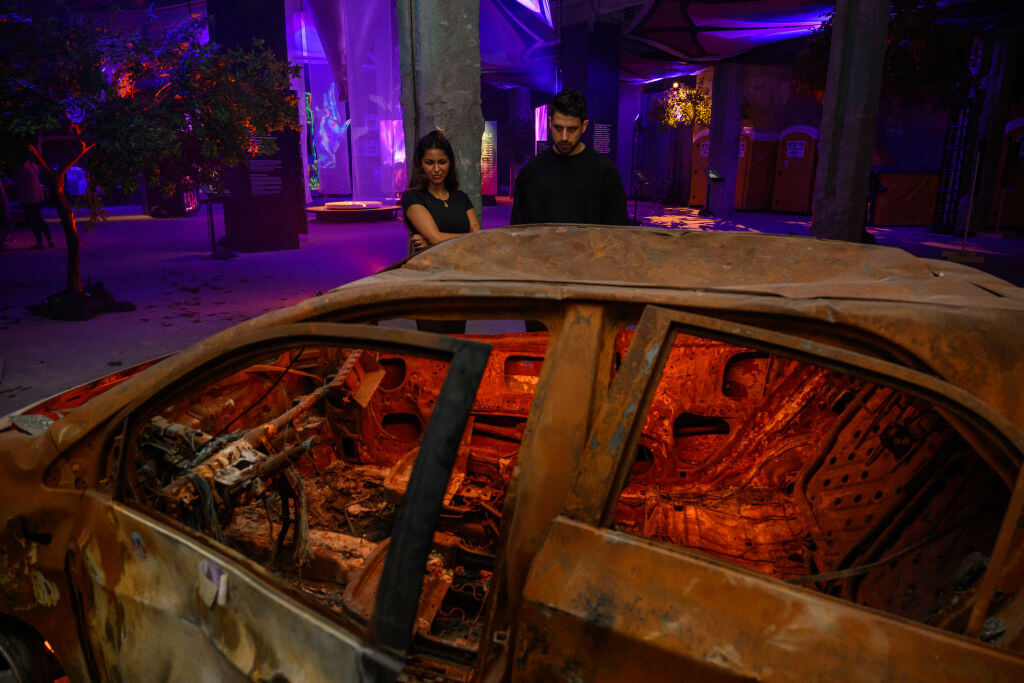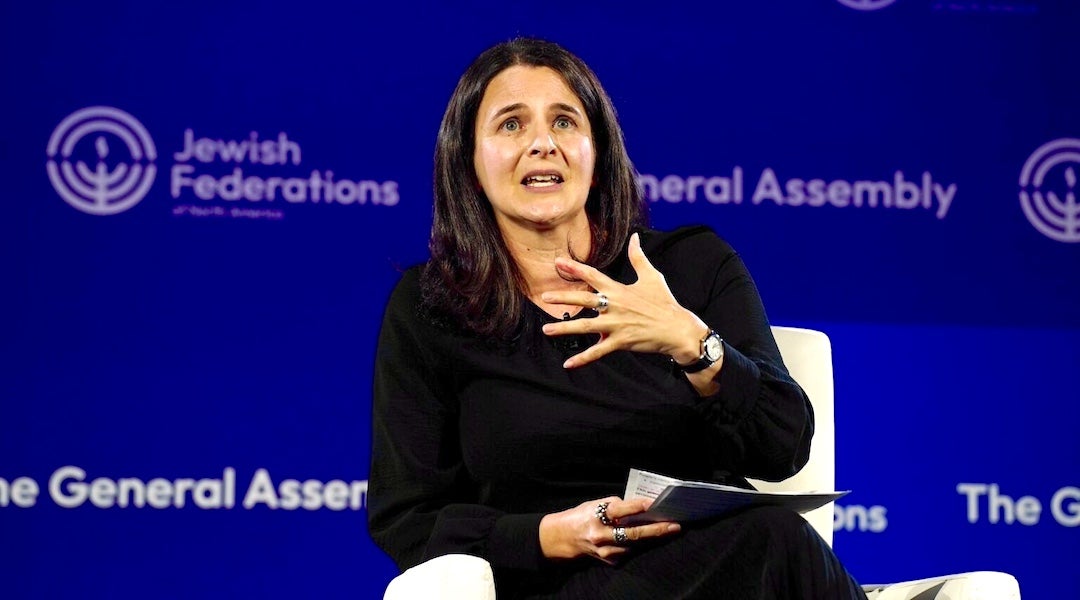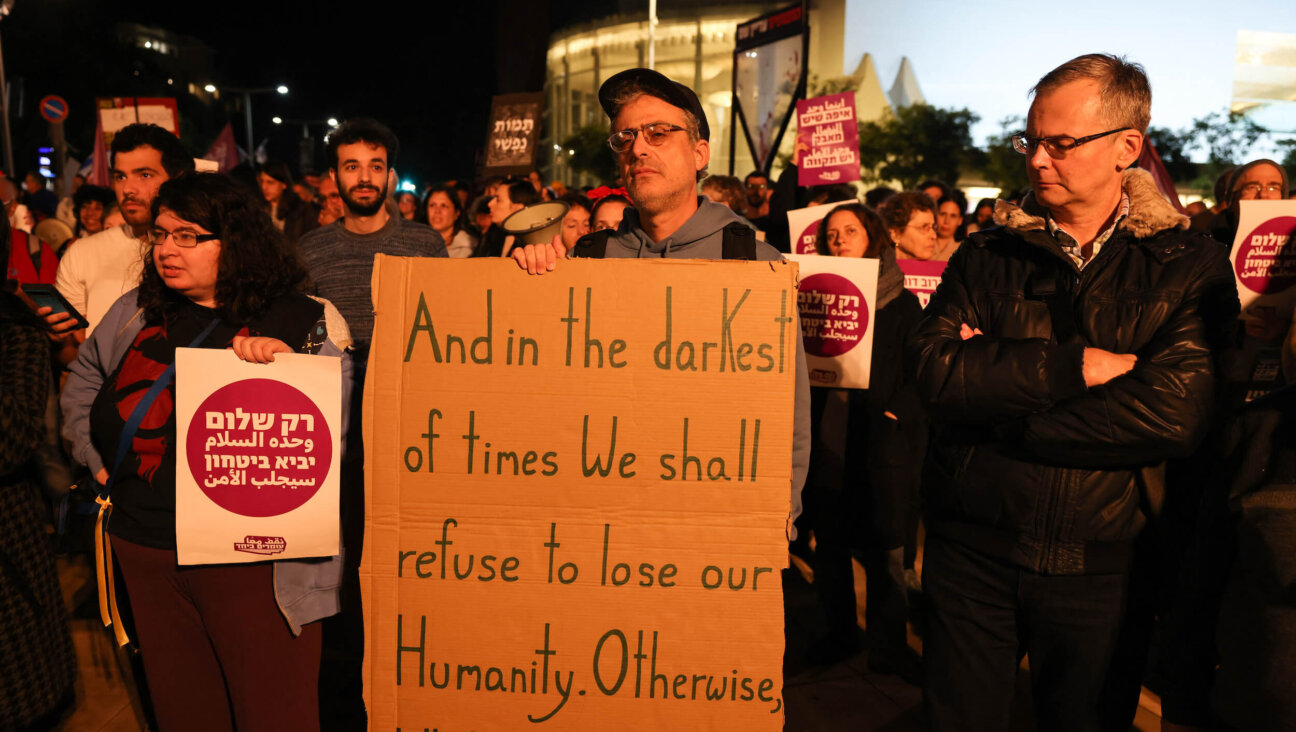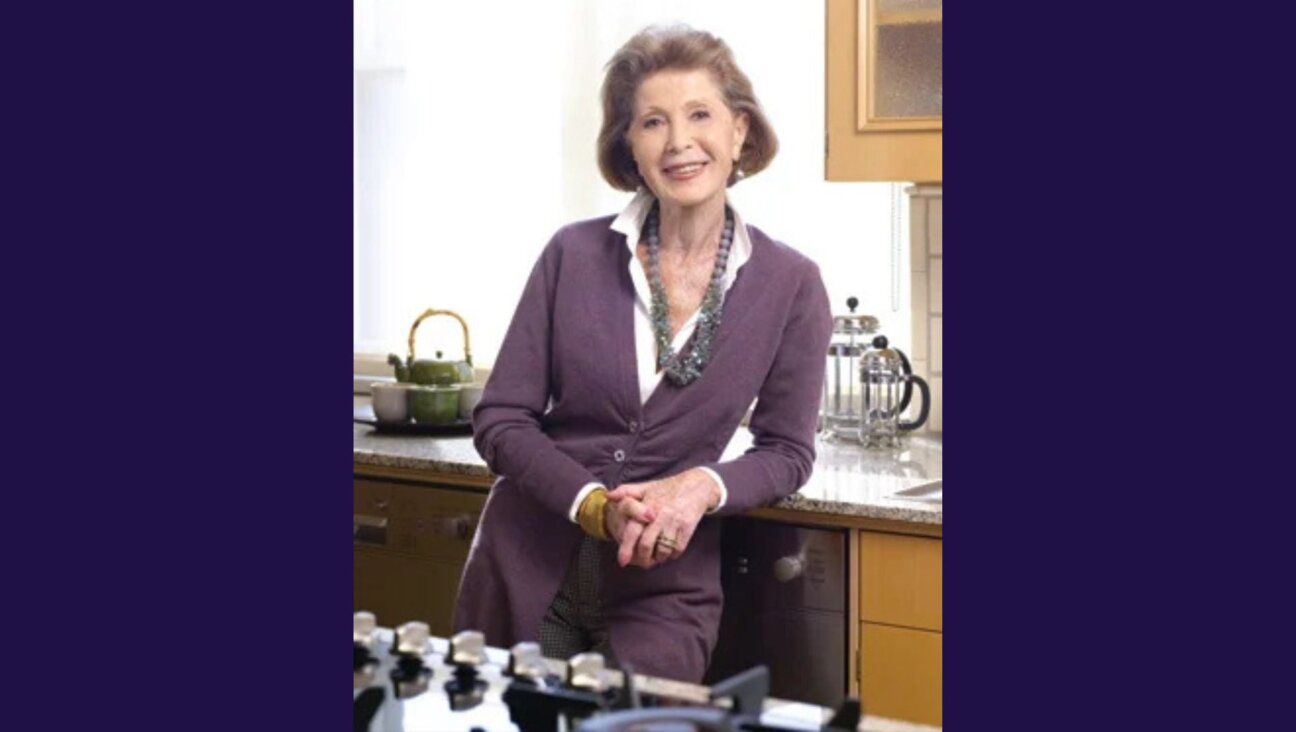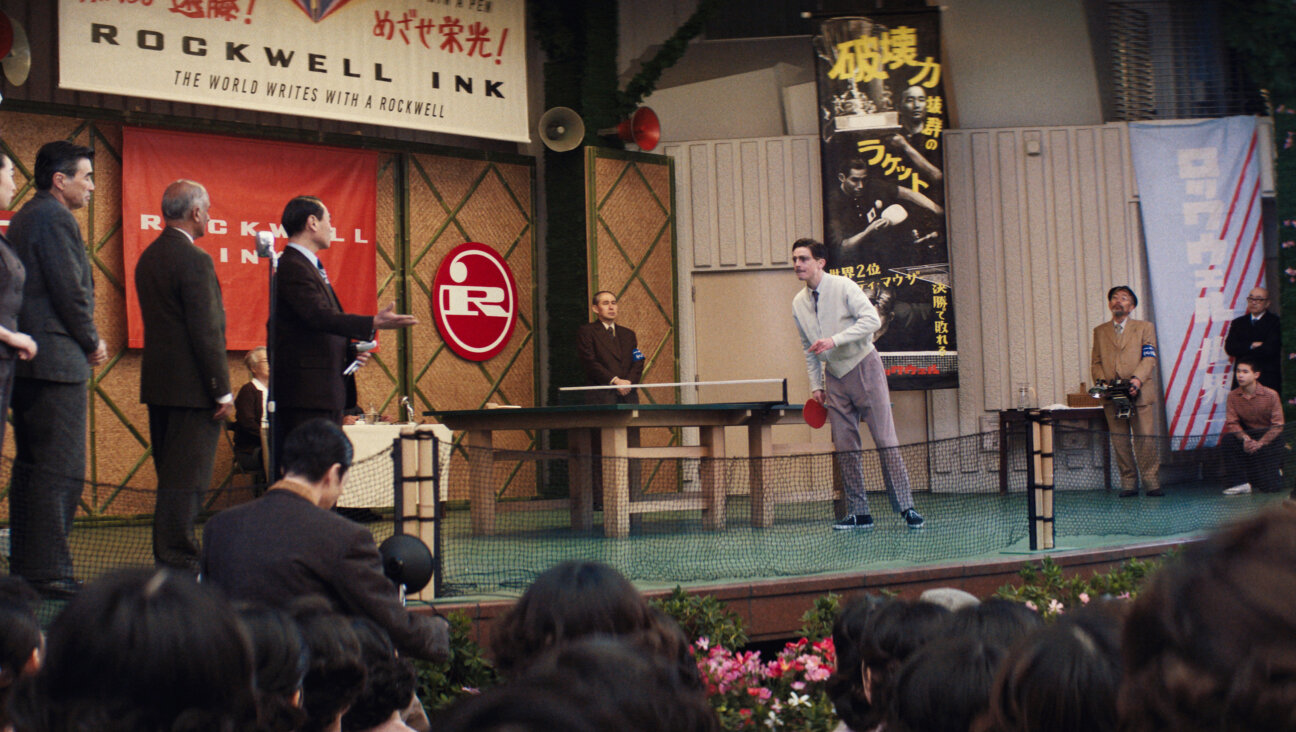Why is there a generation gap over Israel? Because of 20 years of the Israeli right
Politics is tribal, and Gen Z is more progressive than its forebears
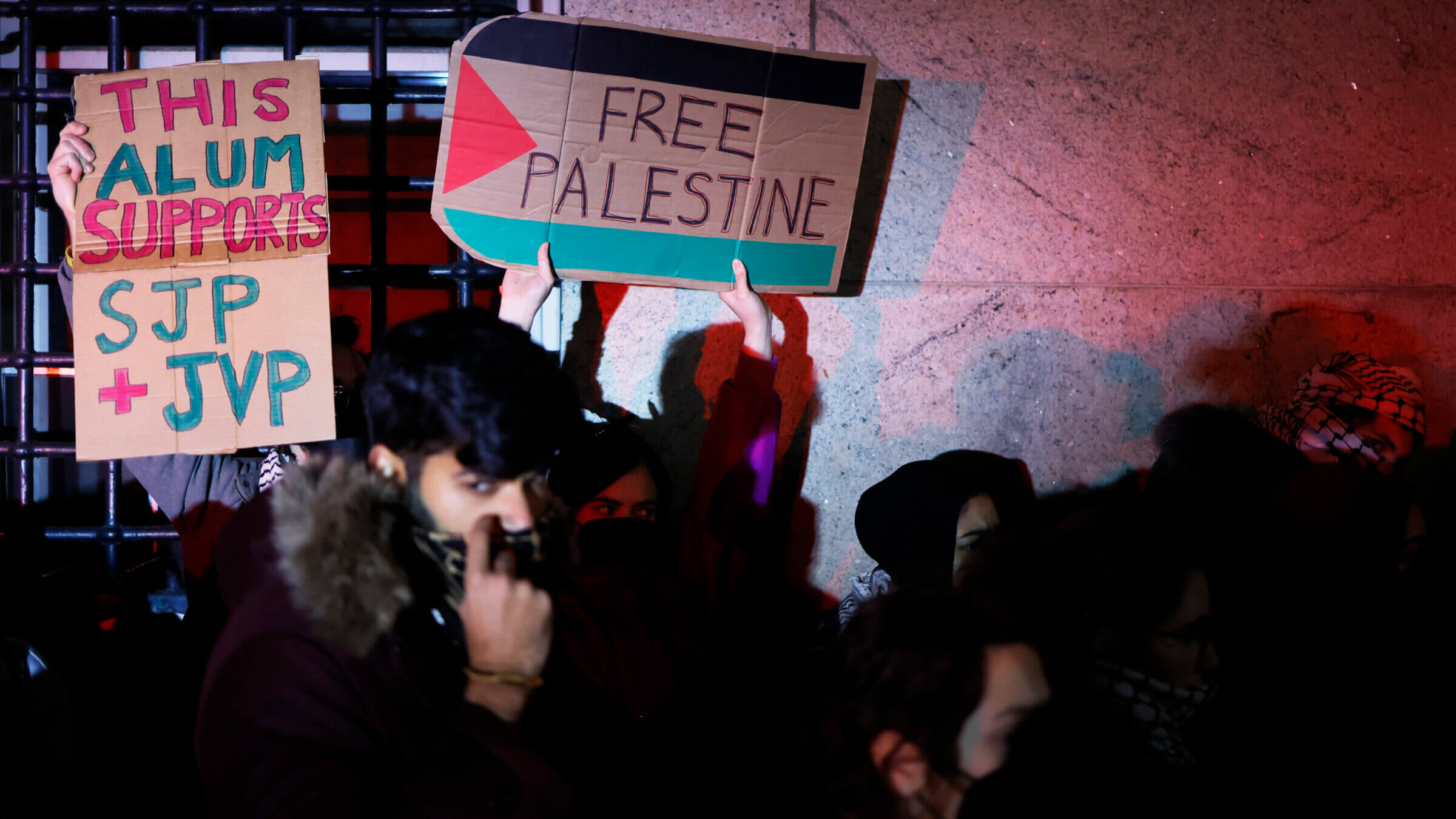
Protesters gather at Columbia University on Nov. 20. Photo by Getty Images
As you may soon find out at your Thanksgiving table, there’s a generation gap when it comes to American Jews and Israel.
A host of polls recently summarized by the Brookings Institute paints a clear picture.
Among Americans in general, an NBC/Marist poll from Oct. 11 — before the worst of the military action had even happened — found that just 48% of millennials and Gen Zers said the U.S. government should support Israel, compared with 83% of baby boomers. And a March 2023 Gallup poll found that while baby boomers had a “net positive sympathy level” with Israel of 46%, millennials had a net negative sympathy level of -2% — meaning, more sympathized with Palestinians than with Israelis.
Among American Jews, asked in a 2020 poll if they believe Israel is making a sincere effort to make peace, only 24% of those 18-29 answered in the affirmative, compared with 33% of Jews overall. In a 2021 poll by the Jewish Electorate Institute, 32% of Jews under 40 said they believed Israel is committing genocide, compared with 18% of those aged 40-64 and 15% of those over 64.
Why is this the case?
There is no single explanation, and not as much robust data. But to understand the cluster of reasons why younger people are disposed against Israel, it’s important to look not at the last six weeks, but at the last 20 years.
First, there’s the emotional connection — or lack thereof. In that 2020 poll, 58% of American Jews said they feel very or somewhat attached to Israel — but among Jews aged 18-29, that drops to 48%. (Among those over 65, the figure is 67%.) Birthright notwithstanding, younger non-Orthodox Jews are less likely to have fond memories of visiting or living in Israel (as I do). Nor do they remember when Israel was a young nation making the deserts bloom, or an underdog surrounded by hostile enemies who tried to destroy it in 1948, 1967, and 1973.
On the contrary, for most of millennials’ and all of Gen Zer’s lives, Israel has been a powerful, nuclear state; the leading recipient of U.S. foreign aid; and a country whose policies toward the Palestinians and toward civil liberties have increasingly drifted from the liberalism espoused by most non-Orthodox American Jews. During that time, a majority of Israelis have voted against a negotiated peace time and time again, electing right-wing coalitions in 2003, 2009, 2013, 2015, 2019 (once; the second time was a tie), 2020, 2021 and 2022.
Gen Xers like myself still remember the 1993 handshake on the White House lawn (I was living in Israel at the time) and the hope that true peace, and a just two-state solution, might be just around the corner. But if you’re 30 now, that’s the year you were born.
You don’t remember that hopeful time. You know the time of Israeli rejection, the separation wall, expanded settlements, and periodic military actions in Gaza and elsewhere. This is the only Israel that younger American Jews have known.
It’s not that Israel is solely to blame; both sides have some degree of responsibility, from Yasir Arafat’s tanking of the 2000 Camp David negotiations to Hamas’ rockets and violence, which long predated the unprecedented horrors of Oct. 7. But in the bigger picture (which, of course, is what most people see) Israel is getting billions of dollars in aid from the United States every year, and Palestinians are living under occupation, with unequal living conditions and without basic democratic rights. You can slice or dice the nuances, you can point to how good Israel is to LGBTQ+ people or how wonderful its technological advances are, but that is the brute reality.
Does all this mean that young people reflexively take the side of Palestine in the current war? No — One can make all these criticisms of Israel and still maintain that Hamas, a theocratic terrorist entity, must be defeated.
But it does mean that you’re more likely to side with innocent Palestinians in Gaza against specific Israeli military objectives, more likely to disbelieve what the IDF says, and more likely to protest the human catastrophe of the war rather than justify it by the atrocities of Oct. 7. It also means you’ll be more susceptible to more extreme and problematic anti-Israel rhetoric, like the words “apartheid” and “genocide,” and more likely to consume media with a pro-Palestinian perspective.
After all, politics is communal — tribal, even. And Gen Z, which has come of age in the aftermath of the 2008 financial crisis, in a more diverse America, and in the looming shadow of climate disaster, is, in general, more progressive than its forebears. We all live in communities of meaning, and politics often comes less as a series of policy positions than as a package, a worldview. It’s not about the intricacies of post-colonial politics; it’s that if you stand in solidarity with the oppressed, that includes Palestinians living under occupation.
But this isn’t just about Gen Z. It’s not even new. Twenty-one years ago, I wrote that “the vocabulary of Israel-Palestine fits neatly into the overall liberal-Leftist grammar of justice.”
At that time, it was still possible to harmonize support for Israel with this overall worldview, because Israel was participating in a peace process that had a just endpoint for Palestine. But that was long ago. Whatever one may make of Israel’s security or other considerations, it has been opposing, not supporting, a just peace for Palestinians for as long as some Gen Zers have been alive. Right or wrong, that policy has consequences.
When it comes to younger American Jews, the Israeli right is reaping what it sowed.



